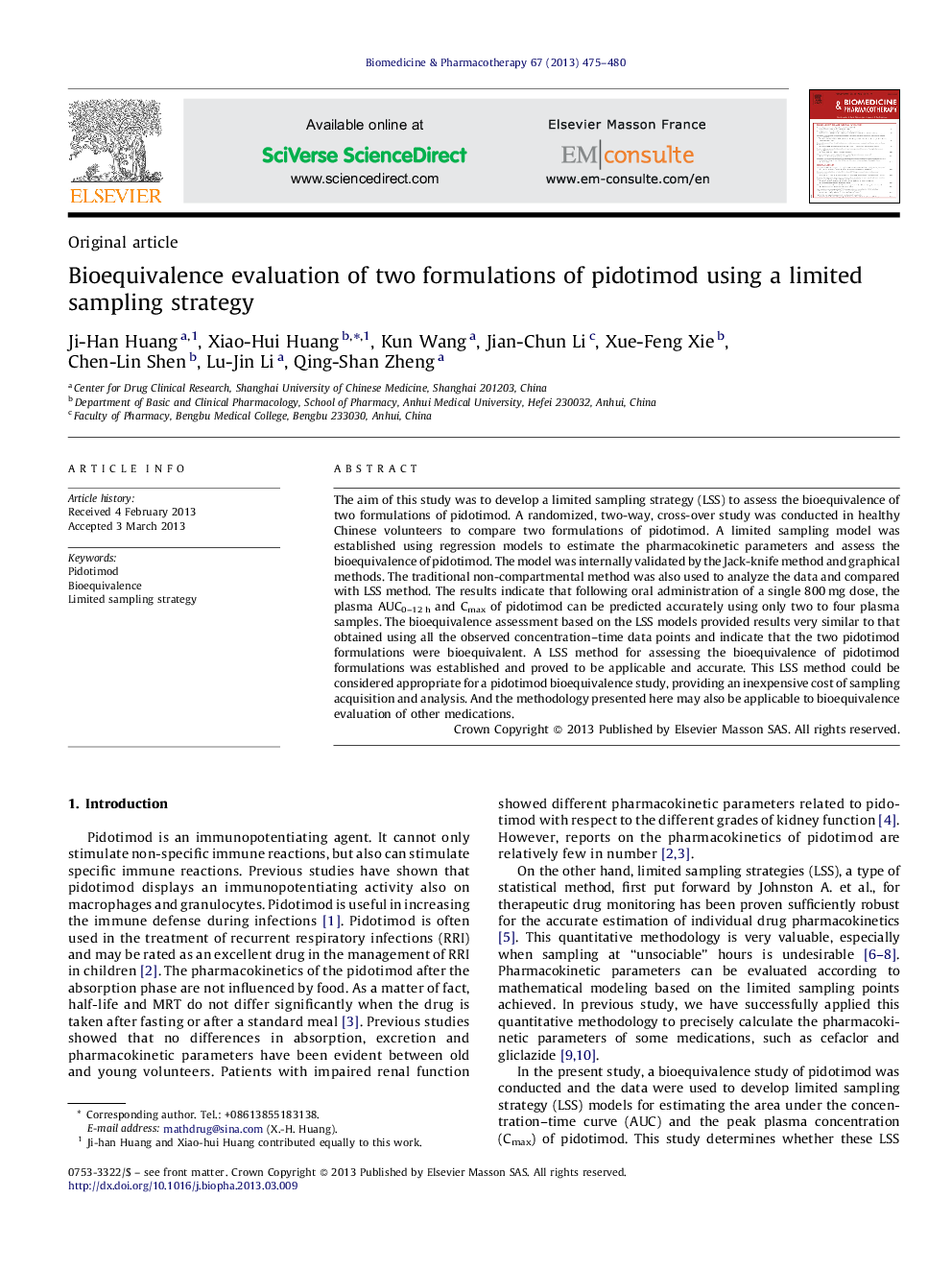| Article ID | Journal | Published Year | Pages | File Type |
|---|---|---|---|---|
| 2524419 | Biomedicine & Pharmacotherapy | 2013 | 6 Pages |
The aim of this study was to develop a limited sampling strategy (LSS) to assess the bioequivalence of two formulations of pidotimod. A randomized, two-way, cross-over study was conducted in healthy Chinese volunteers to compare two formulations of pidotimod. A limited sampling model was established using regression models to estimate the pharmacokinetic parameters and assess the bioequivalence of pidotimod. The model was internally validated by the Jack-knife method and graphical methods. The traditional non-compartmental method was also used to analyze the data and compared with LSS method. The results indicate that following oral administration of a single 800 mg dose, the plasma AUC0–12 h and Cmax of pidotimod can be predicted accurately using only two to four plasma samples. The bioequivalence assessment based on the LSS models provided results very similar to that obtained using all the observed concentration–time data points and indicate that the two pidotimod formulations were bioequivalent. A LSS method for assessing the bioequivalence of pidotimod formulations was established and proved to be applicable and accurate. This LSS method could be considered appropriate for a pidotimod bioequivalence study, providing an inexpensive cost of sampling acquisition and analysis. And the methodology presented here may also be applicable to bioequivalence evaluation of other medications.
